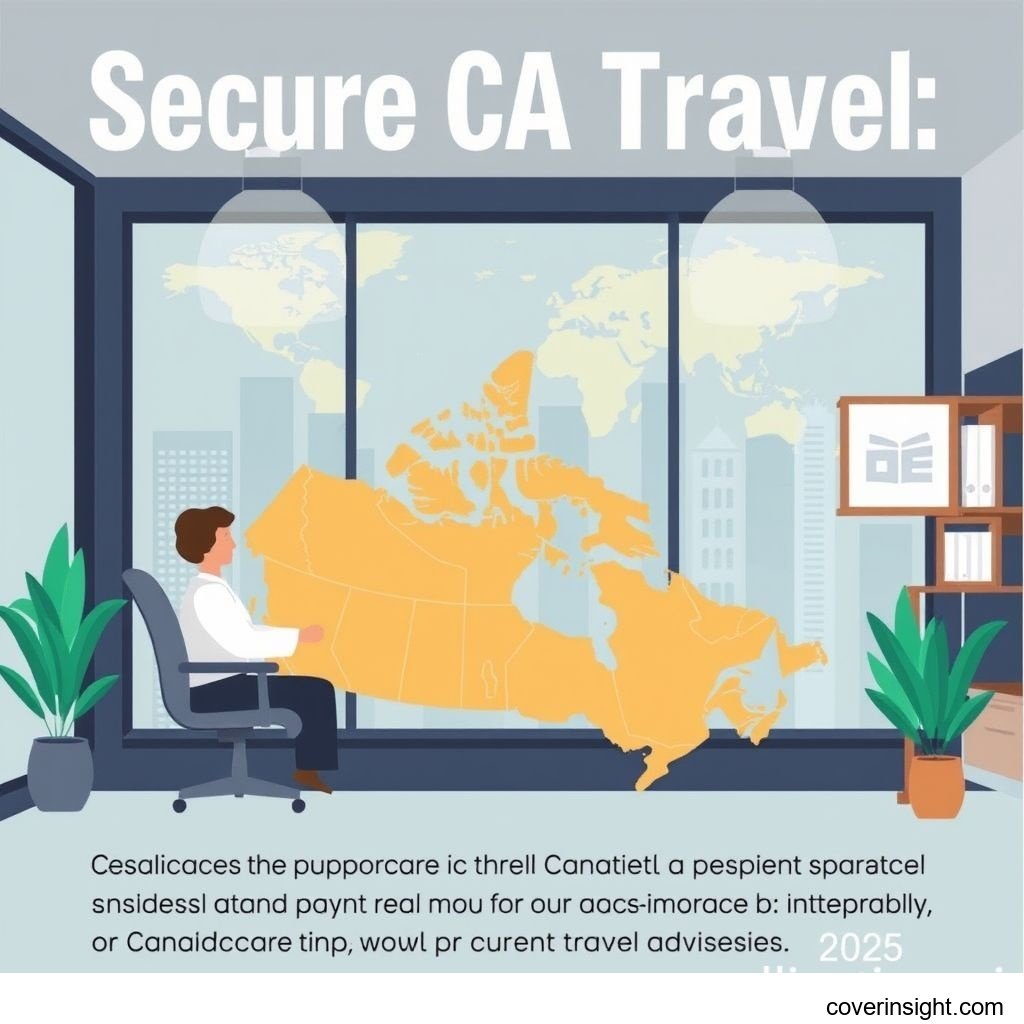Senior Travel Insurance Canada 2025: Your Essential Guide
Navigating the world of travel insurance can feel like a labyrinth, especially as you enter your golden years. For Canadian seniors planning adventures in 2025, understanding senior travel insurance Canada 2025 is not just prudent—it's essential. Whether you’re dreaming of a European river cruise, a sunny escape down south, or simply visiting family across the border, unexpected events can turn a dream trip into a financial nightmare without adequate protection. This guide will walk you through the nuances, ensuring your peace of mind is as packed as your suitcase.
Coverage Details
What’s Included
A robust senior travel insurance policy typically offers a safety net for various unforeseen circumstances. At its core, emergency medical coverage is paramount. This covers expenses for sudden illness or injury while abroad, including hospital stays, doctor’s fees, prescription drugs, and even emergency air ambulance services back to Canada if medically necessary. Beyond medical, look for coverage for trip cancellation or interruption, which can reimburse non-refundable expenses if your trip is cut short or called off due to reasons like illness, family emergencies, or unexpected job loss. Baggage loss or delay coverage can also be a lifesaver, helping replace essentials if your luggage goes astray. Some policies may also include accidental death and dismemberment, or even legal assistance while travelling.
Common Exclusions
While comprehensive, no insurance policy covers absolutely everything. Common exclusions often include pre-existing medical conditions that were not disclosed, stable, and approved by the insurer, or those for which you received treatment within a specified period before your trip. High-risk activities like heli-skiing or deep-sea diving might also be excluded unless you purchase an additional rider. Acts of war, self-inflicted injuries, drug or alcohol-related incidents, and elective medical procedures are almost always excluded. It's crucial to read the fine print; don't just skim it. Many claims are denied because policyholders didn't fully understand what was not covered, leading to a truly sour taste for what should have been a sweet adventure.
Cost Analysis
Price Factors
The cost of senior travel insurance Canada 2025 is influenced by several factors, making it highly personalized. Your age is undeniably the most significant determinant; premiums generally increase with age due to higher perceived health risks. Your health status, including any pre-existing conditions and medications, will also play a major role, often requiring a medical questionnaire. The destination of your trip matters – medical costs vary significantly around the globe. The duration of your travel, the total coverage amount you select, and any optional add-ons (like adventure sports coverage) will also impact the final premium.
Saving Tips
While you can’t turn back the clock, there are smart ways to potentially lower your premiums. Start by shopping around and comparing quotes from multiple providers; a few minutes of online research or calls can lead to significant savings. Consider an annual multi-trip plan if you travel frequently, as it often works out cheaper than purchasing individual policies for each trip. Raising your deductible can also reduce your premium, though it means you'll pay more out-of-pocket if a claim arises. For example, according to the Insurance Bureau of Canada, comparing options and understanding policy details is key to finding the best value. Also, if you’re enrolled in a group plan through an association or former employer, check if it offers travel insurance benefits, as these can sometimes be more affordable.
FAQs
-
How much does senior travel insurance cost? The cost varies widely, typically ranging from a few hundred dollars to several thousand, depending on the factors mentioned above (age, health, destination, duration). For a two-week trip, a healthy 70-year-old might pay anywhere from $150 to $500, but someone with complex pre-existing conditions could see premiums significantly higher.
-
What affects premiums? As discussed, age, pre-existing medical conditions, trip duration, destination (e.g., USA is often pricier), and the level of coverage you choose are the primary drivers of premium costs.
-
Is it mandatory? No, travel insurance is not legally mandatory for Canadians travelling abroad, but it is highly recommended. Your provincial health plan, like OHIP or BC MSP, offers very limited coverage outside your home province or Canada. Without private insurance, you are fully responsible for potentially astronomical medical bills.
-
How to choose? Start by assessing your health and travel needs. Get quotes from several providers. Carefully review the policy wording, especially regarding pre-existing conditions and exclusions. Look for good customer service and a clear claims process. Resources like Financial Consumer Agency provide excellent checklists and advice for selecting the right policy. For a broader perspective, you can also explore Insurance Resources Global.
-
Consequences of no coverage? The consequences can be devastating. Imagine a scenario like Joan, a 78-year-old from Calgary, who broke her hip during a fall while on vacation in Mexico. Without insurance, her medical bills, including surgery and air ambulance evacuation back to Canada, soared past $80,000. This is not an isolated incident; stories like Joan's are sadly common. It's a stark reminder that a lack of coverage can lead to severe financial hardship, potentially wiping out retirement savings. This is why having proper protection for your trip is so crucial. If you're looking for more local specific information, check out CA Insurance Home.
Author Insight & Experience
Based on my experience living in Canada and hearing countless stories, the regret of not having adequate travel insurance far outweighs the cost of the premium. I've seen firsthand how a seemingly minor incident abroad can quickly escalate into a six-figure medical bill. It's not just about covering worst-case scenarios; it's about the peace of mind knowing that if something unexpected happens, you're not left footing an insurmountable bill or navigating a complex foreign healthcare system alone. Think of it as a small investment in your well-being and financial security, allowing you to truly relax and enjoy your travels without that nagging "what if" in the back of your mind.








Comments